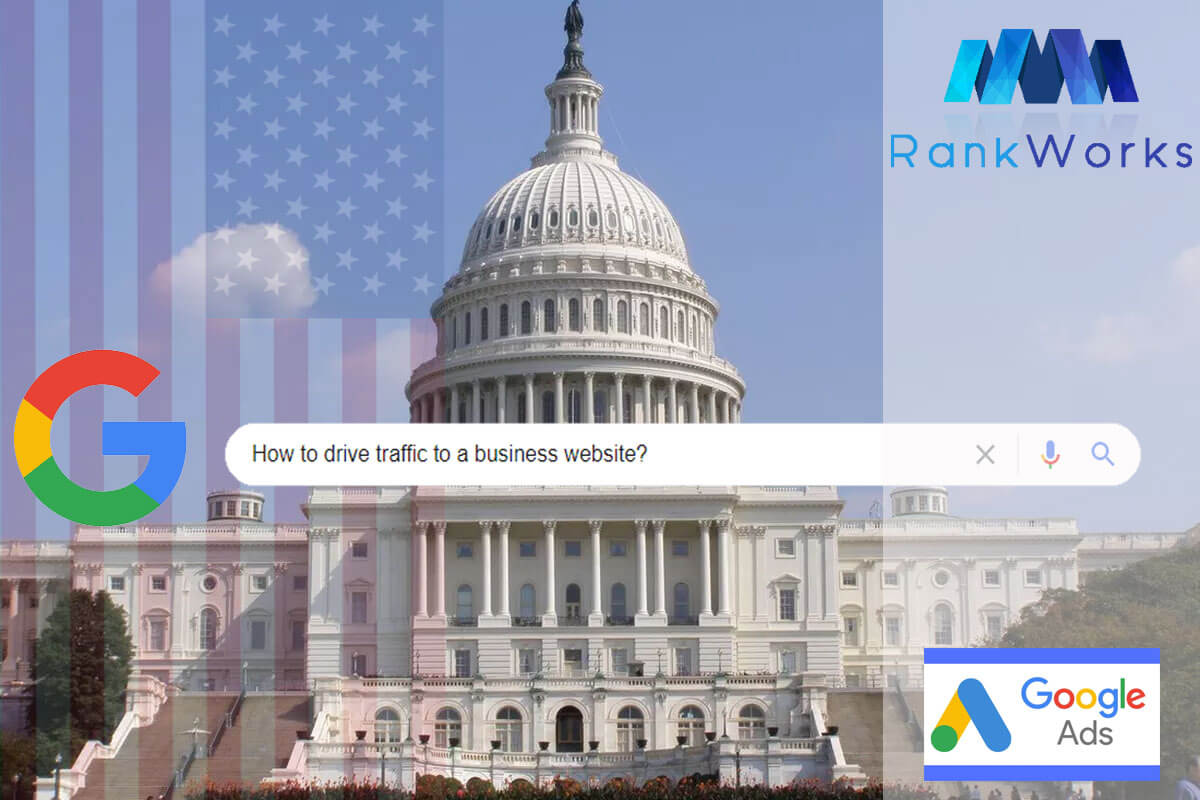Using organic and pay per click traffic to convert more online customers
As Google prepares to be sued by the Justice Department in what will be the biggest U.S. antitrust case since the government went after Microsoft in the late 1990s, Google’s CEO Sundar Pichai has named a long list of digital rivals in his opening statement ahead of Wednesday’s hearing with the U.S. House of Representative Subcommittee on antitrust.
Google controls 85% of the online search market in the U.S., and dominates the industry even more in Europe where it has already been heavily fined for breaking antitrust rules. The truth of the matter is that most businesses both large and small rely on Google’s search engine to get discovered online and drive traffic to their websites. Every other internet company that have search capabilities can’t even compete with Google’s dominance in its industry. Therefore, if you want your company to be successful online, finding the right strategy to get found and listed on Google’s search engine results page (SERP) is a necessity.
Google’s search upgrades to its algorithm and platform make it even more difficult and more expensive for businesses to win traffic year over year. There are two methods of getting traffic from Google’s search engine, organically and through paid ads. Both methods can be costly if you don’t have the right expertise or experience with getting your company listed on Google. Getting this online strategy right will increase the profitability of any company and allow it to dominate its online market.
Organic traffic can be described as free traffic. Below the top section of paid ads is where organic results appear on a SERP. Google doesn’t charge companies to have their results listed in this area but it takes a lot of work to appear in this section. A website needs to have strong quality content that is unique to rank organically for competitive keywords and this takes a lot of work. Marketers need to analyze lots of analytic data to find opportunities to improve positioning in search results based on keyword traffic. This kind of traffic is driven by search engine optimization (SEO) marketing. It can take a lot of skill to develop page content and improve initiatives to get a business positioned in the organic results. This is why hiring a good SEO agency is an important decision when developing a business website. In the long run, a strong SEO strategy will produce a lot of inbound leads that will result in sales opportunities.
Paid traffic with Google is the fastest way to produce inbound traffic to a website. The method is commonly known as Pay Per Click or Cost Per Click advertising. This is a keyword bidding auction method that is conducted through the Google Ads platform. In essence a company will create a keyword list based on the words that are relevant to its business. When a user conducts a search on Google and types in a keyword that the company is bidding on in its keyword list, that company’s ad will appear above all other search results. Since there are multiple companies bidding on the same keywords the price per keyword click can become expensive. Paying for website traffic is an important marketing strategy and a good PPC agency will have a lot of experience with controlling and lowering the cost per click. Methods such as targeting, retargeting, dayparting, long term keyword bidding, exact matching, broad matching, negative matching and plethora of other keyword bidding strategies to maximize conversions are used to make an ad campaign profitable.
Both organic and pay per click traffic are important for a company’s online success. These two online marketing methods should be combined when developing an online business strategy. If your business needs help with implementing an online marketing plan then contact RankWorks for a free online business analysis. Our marketing specialists will explain everything that your company needs to grow its online presence. They will also explain what the competition is doing in your marketplace and how your business can get ahead and stay ahead.


